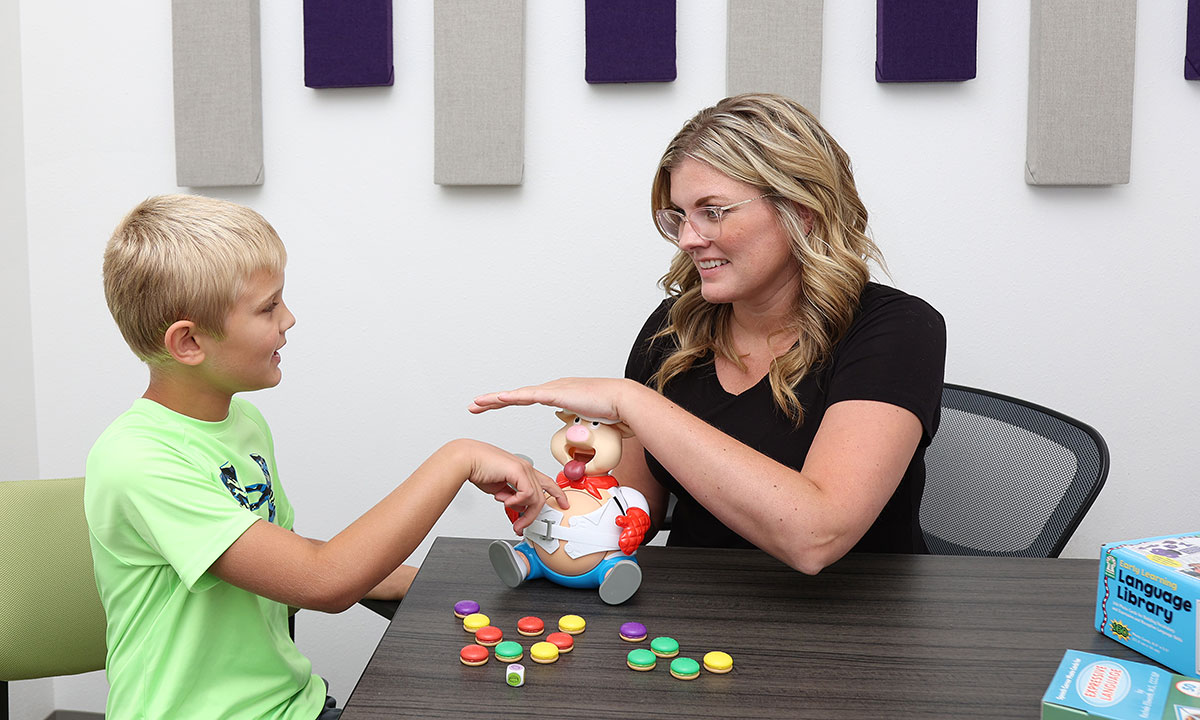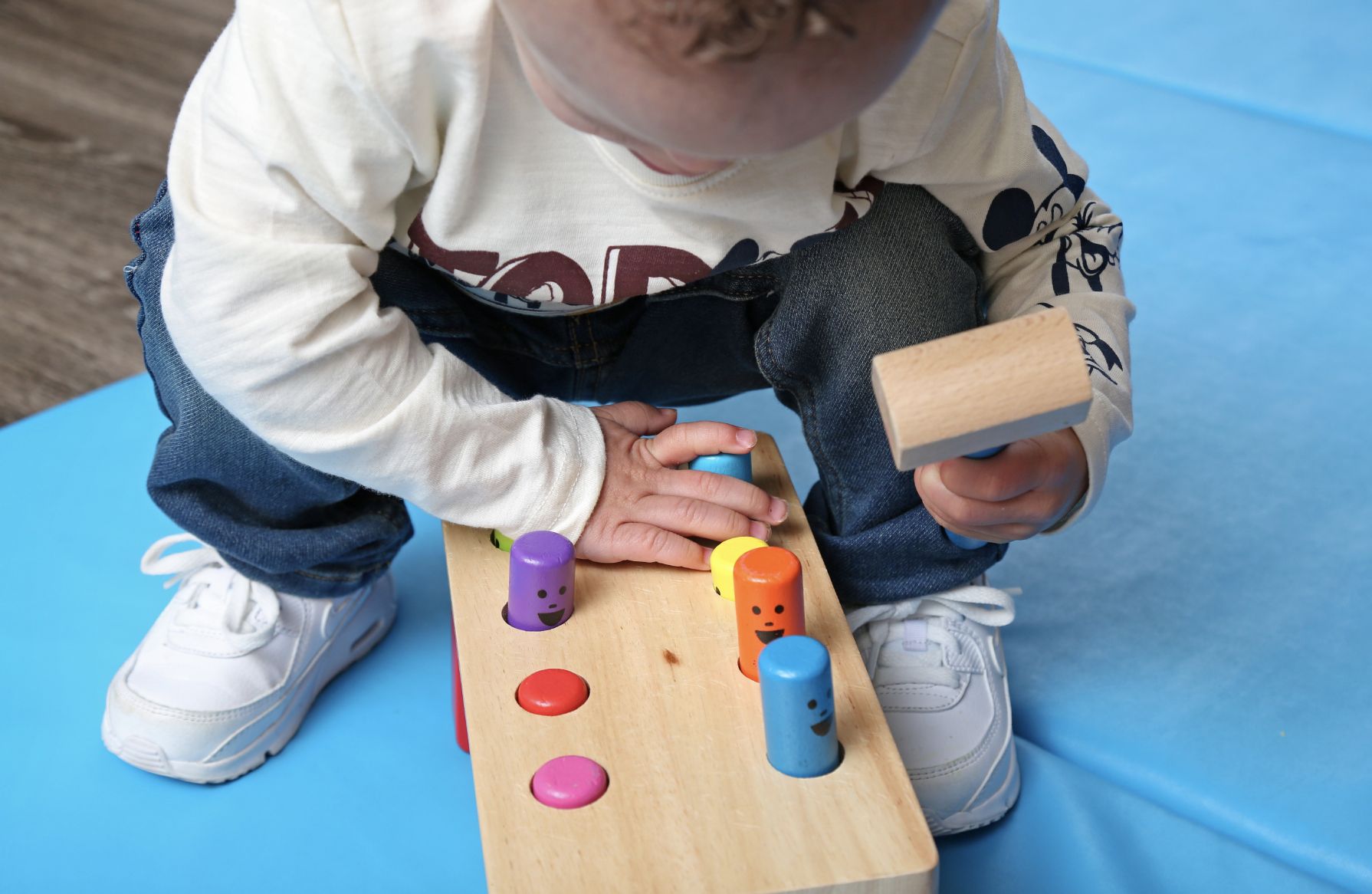
Occupational therapy helps children improve function in fine and gross motor skills, handwriting, self-care, spatial awareness, and sensory processing difficulties.

Our therapists work with many different diagnoses including:
Autism Spectrum Disorder
ADD/ADHD
Cerebral Palsy
Fine and Gross Motor Delay
Stroke
Sensory Processing Disorder
Down Syndrome
Hypotonia
Feeding, Self-Care, and Ocular Motor needs
Dysgraphia/Dyslexia
A child may scream and cry if their hands and faces get wet or messy. A child may gag if their hands touch something sticky. A child may throw a tantrum when getting dressed or when feeling a tag on their skin. They may have an unusually high tolerance to pain or be very sensitive to touch.
You may notice that your child is always on the go, running everywhere from one thing to the next and just cannot settle down. Your child may not want their feet to leave the ground or may be very resistant to movement like swings or slides.
Your child may put all kinds of objects in their mouth. Your child may be a very selective, picky eater and may avoid certain textures. Your child may be sensitive to sounds.

How Does Occupational Therapy Help?
During therapy sessions, the child is engaged in purposeful play while being directed through challenging therapeutic tasks. For sensory needs, your child is exposed to various types of sensory stimuli in a structured and repetitive manner. The goal is that over time the brain will adapt and the child will be able to process sensations and react to them more efficiently. Playful engagement is the goal as play is the child’s work. You may see your child participating in a variety of activities utilizing movement, touch, sight, smell, and sound with the end goal being a more consistent sensory response to improve your child’s performance in the home, community, and/or school setting.